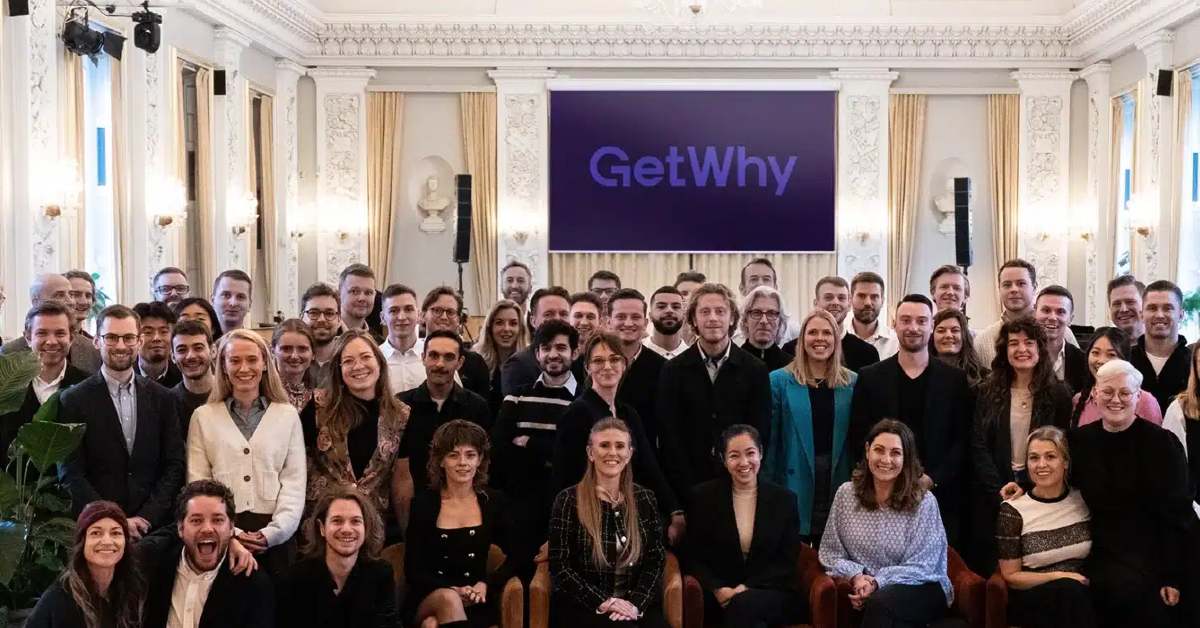As startups from China and the USA are quickly growing into massive companies, scaling up in Europe sometimes proves to be a particular challenge. We spoke with Dr. Chahab Nastar about the opportunities and difficulties European companies face. As Chief Innovation Officer at EIT Digital, he keeps a finger on the pulse in the European market.
“Europe does not have a shortage of startups,” Nastar says. “I think we create enough startups and there are a number of mostly national mechanisms for funding early-stage startups.” So the future is bright? “Well, what’s at stake for Europe is how some of these startups will become giant companies. Who’s the next SAP? The next Nokia, Ericsson or Philips? In the digital era, Europe has not been very successful in building companies that dominate their market.” He does, however, have some recommendations to change that and shared those with us.
1: See Europe as your domestic market
“Europe is a fragmented market. If you start in Europe, say, in Belgium or The Netherlands, that might be your primary market. Whereas a company starting in Silicon Valley can instantly sell anywhere in the USA. We need to do the same in Europe. Start anywhere, address the whole of Europe as your domestic market. That is what we do with our accelerator in a hands-on way. We find customers and investors outside of your home country. Because your home country should be the whole of Europe. Policy makers are working along the same lines. Europe needs to make rapid progress in building a uniform, single, digital market open to entrepreneurs of the whole continent.”
2: Let European values lead the way
“Cybersecurity and privacy are going to be huge. Europe needs to show leadership in this domain. Because it is very aligned with European values in a number of things, like inclusiveness, equality of treatment and serving and protecting the citizens, Europe has the opportunity to lead. And in some areas, this is already the case, with things like GDPR or PSD2 in finance.”
To Nastar, artificial intelligence is connected to these European values as well. “Of course, AI is a key technology that Europe needs to excel in and adopt. But it needs to do so with the European values of ethics. That will make all the difference.”
He adds that one key element for Europe is to find the right balance between innovation, experimentation and sometimes mistake while at the same time focusing on regulation and protection. “Let’s talk about micro-mobility. Not the cars, but bikes and scooters. The main challenge here is to find a balance between innovation and regulation. For example in Paris, we now have these self-serve e-scooters everywhere. They are great! But also a bit chaotic on the sidewalk. Every new solution creates a new challenge. There’s an experiment, and then the regulation will catch up. The question is, in which order shall we do this? In which cases do we need to regulate before we experiment, and vice-versa?”
3: Support deep tech talent
Nastar believes that digital is a human matter. “When you think of digital innovation, the imagery that usually comes to mind is open spaces, lines of code, robots wandering around. This is all wrong. Innovation is a human matter, especially in deep tech, where the technologies to master are complex, and often rooted in research. In Europe, scientific education is generally excellent. US big tech has noticed this, and has opened innovation centers in Europe. Venture Capital has noticed this as well. Europe is well positioned in deep tech, and that is why at EIT Digital, we focus our efforts on deep tech.”
4: Focus on these strategic tech areas
“At EIT Digital”, Nastar explains, “we are focusing our investments in five focus areas where we believe Europe can win. “Digital Tech is a horizontal area focused on core digital technologies: cybersecurity and privacy, data science and connectivity. We see a convergence of these technologies in the market. This is a key area of investment for Europe, and we have major European companies succeeding in these domains”.
Nastar is spotting several trends that just might take European tech to the next level. He starts with Digital Industry. Offshoring is out, keeping production in the continent is in: “Companies see it is not necessarily cheaper, safer or better to outsource. And there are some interesting innovations going on in European factories, where they implement augmented or virtual reality for the factory floor. Workers have helmets and glasses where they see instructions superimposed on what they are making.”
In the area of Digital Wellbeing, prevention will be key, says Nastar. “Finding a cure is one thing, but prevention is much more important. The idea is to say ‘we’re going to make sure you don’t fall ill.’ And we will use all kinds of sensors that produce vast amounts of data for that.” But at the same time, there are challenges to be solved for specific groups of people. Nastar: “It touches on all groups in society. You want to reach the highly digitized youth and keep the elderly independent. You also want to address working professionals. How do we make sure they are efficient and not overtired or stressed out?”

Looking at Digital Cities, the main challenge Nastar sees is their sustainable development. “Modern cities are in many ways more important than entire countries. They are under major pressure due to massive growth. How will they deal with this? Data needs to help them to run the city planning smoothly while improving the quality of life for their inhabitants. We want European cities to be inclusive, resilient and safe to any kind of threat.”
Nastar also sees major developments in the Digital Finance domain, where cryptocurrencies are causing major disruption. “The main concepts in finance are: trust, risk, credit, and of course money. How can digital support these concepts? The spotlight is currently on cryptocurrencies, with the political response to Facebook’s Libra as an example. But the real question is: how can Europe invent the future of digital finance, which is a regulated market, by guaranteeing trust in the financial systems as well as security, privacy, transparency and convenience for the citizens?”
Nastar sees a golden future for any European startup that is able to overcome these challenges, spot the right trend and take it to the next level. At EIT Digital, he’ll see to it that European entrepreneurs are able to build companies that dominate the market for decades to come.
This article is produced in a collaboration with EIT Digital. Read more about our partnering opportunities.










01
From telecom veteran to Dutch Startup Visa success: The Jignesh Dave story